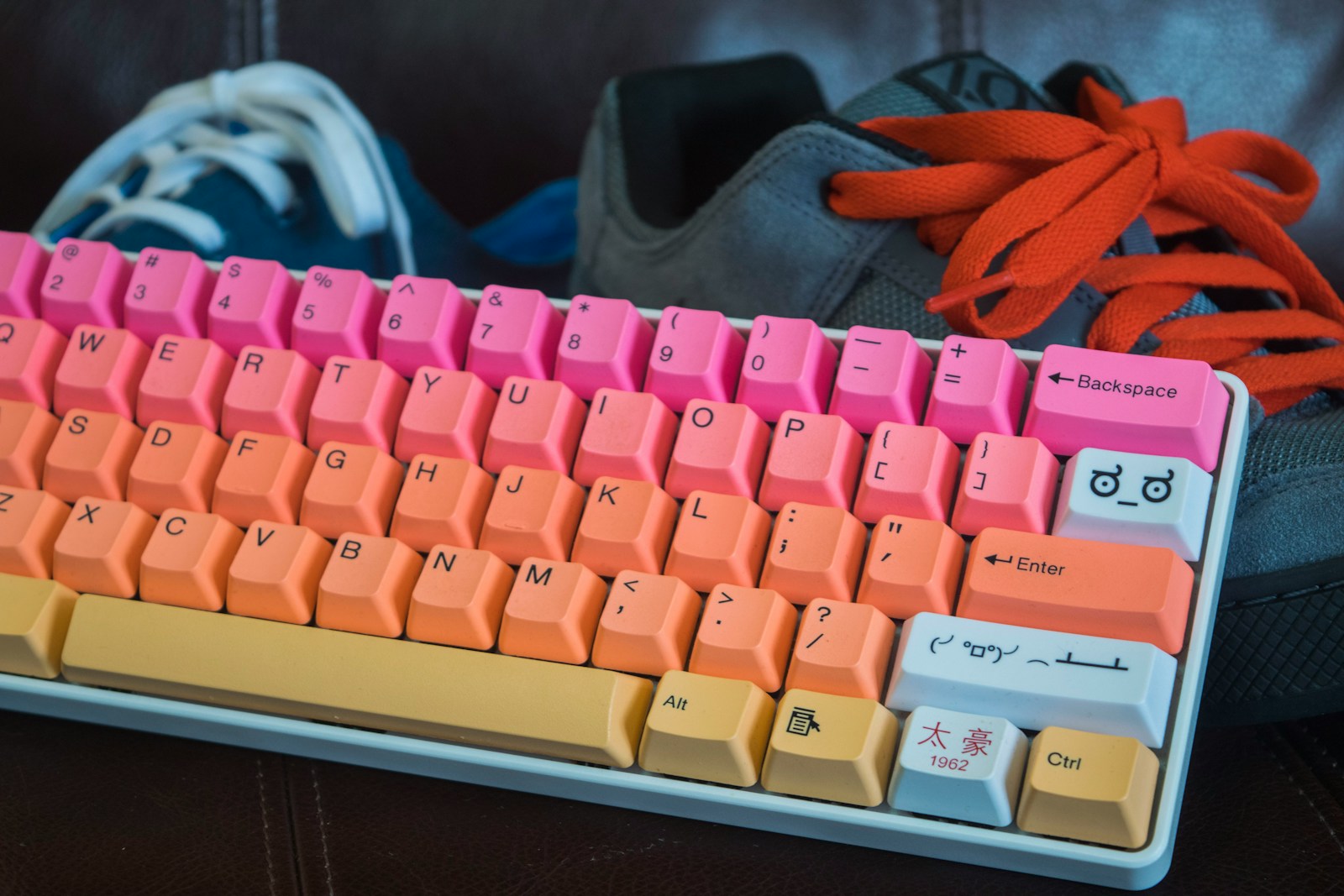What Exactly Is a Mechanical Keyboard?
Before diving into the allure, it’s worth understanding what “mechanical keyboard” means. In simple terms, they’re keyboards built from individual mechanical switches for every key, unlike the rubber dome or membrane keyboards that dominate laptop designs and general office setups.
Each mechanical switch is a self-contained mechanism, typically consisting of a spring, housing, and keycap. When pressed, these switches deliver precise feedback that’s infinitely customizable—both in sound and touch. They’re the midwives of your typing experience, amplifying something you might otherwise overlook.
The Tactile Connection: Why Feel Matters
You likely haven’t thought about how your keyboard feels under your fingers. Most people don’t; typing is an invisible utility. But with mechanical keyboards, you feel every keystroke. That’s part of the appeal—text is no longer something you merely see on a screen but something you engage with physically as you type it out.
There are various switch types, from “clicky” switches that make satisfying audible clicks, to smooth and silent linear variants, all the way to tactile options that deliver a small bump at the actuation point. Each one is carefully engineered to offer a consistent, customized experience. Typing becomes an event, not a chore.
It’s no surprise that programmers, writers, and gamers gravitate toward these tools. The physical response of a keystroke—an intentional and well-crafted motion—makes game controls crisper, code-writing satisfying, and long hours of writing a bit more bearable. You don’t need to be a genius, but you do need a tool that stays out of the way while helping you immerse yourself in the work.
Durability: Why Mechanical Keyboards Last
Most mass-market keyboards use rubber dome technology, which degrades over time and wears out relatively easily. Mechanical keyboards, on the other hand, are built to endure.
Each mechanical switch is rated for tens of millions of presses—far beyond what you’ll ever type in a lifetime. Gamers hammer away during intense matches, writers churn out manuscript after manuscript, and yet the keys keep coming back for more. This durability isn’t flashy or innovative; it simply works because it’s built to respect the long-term craft of interaction.
Customization: A Keyboard That Works for You
What makes mechanical keyboards truly unique is their potential for customization. Ready to tweak something? The keyboard world invites you in. From swapping keycaps to entirely modding your switches, these devices are made to adapt to their owner.
Keycaps: Personalizing the Surface
Keycaps come in various shapes, sizes, and materials—ABS, PBT plastic, rubberized options for gamers, and even artisan keycaps handmade from resin. You can adjust the aesthetics, making your keyboard an extension of your personality.
Switches: Customizing the Feel
You can take things even further with hot-swappable mechanical keyboards, which let you replace one type of switch with another. Want clicky sounds for typing one day but a quieter, stealthier experience the next? The options are endless, and the keyboard evolves with you.
The Community: A Shared Obsession
The rise of forums like Reddit’s mechanical keyboard subgroup (r/MechanicalKeyboards) reveals another layer of allure: the community. Beyond the specifications and custom builds lies a shared enthusiasm for making an everyday tool better. Participants discuss switch lubing techniques, run collaborative group buys for rare keycaps, or showcase intricate DIY creations that double as art.
Tech as a Tool, Not a Distraction
Kevin Kelly once suggested that technology, like a species, uses us to achieve its objectives. Mechanical keyboards, however, occupy a different space in our tech ecosphere. They’re not demanding constant updates or fighting for our attention. Instead, they simply enable productivity and precision.
In a world saturated with convenience and disposability, mechanical keyboards represent a quiet resistance. They remind us that for all our technological progress, our tools should get out of the way and let us create. No bells, no distractions, just intentional craft.
“`
